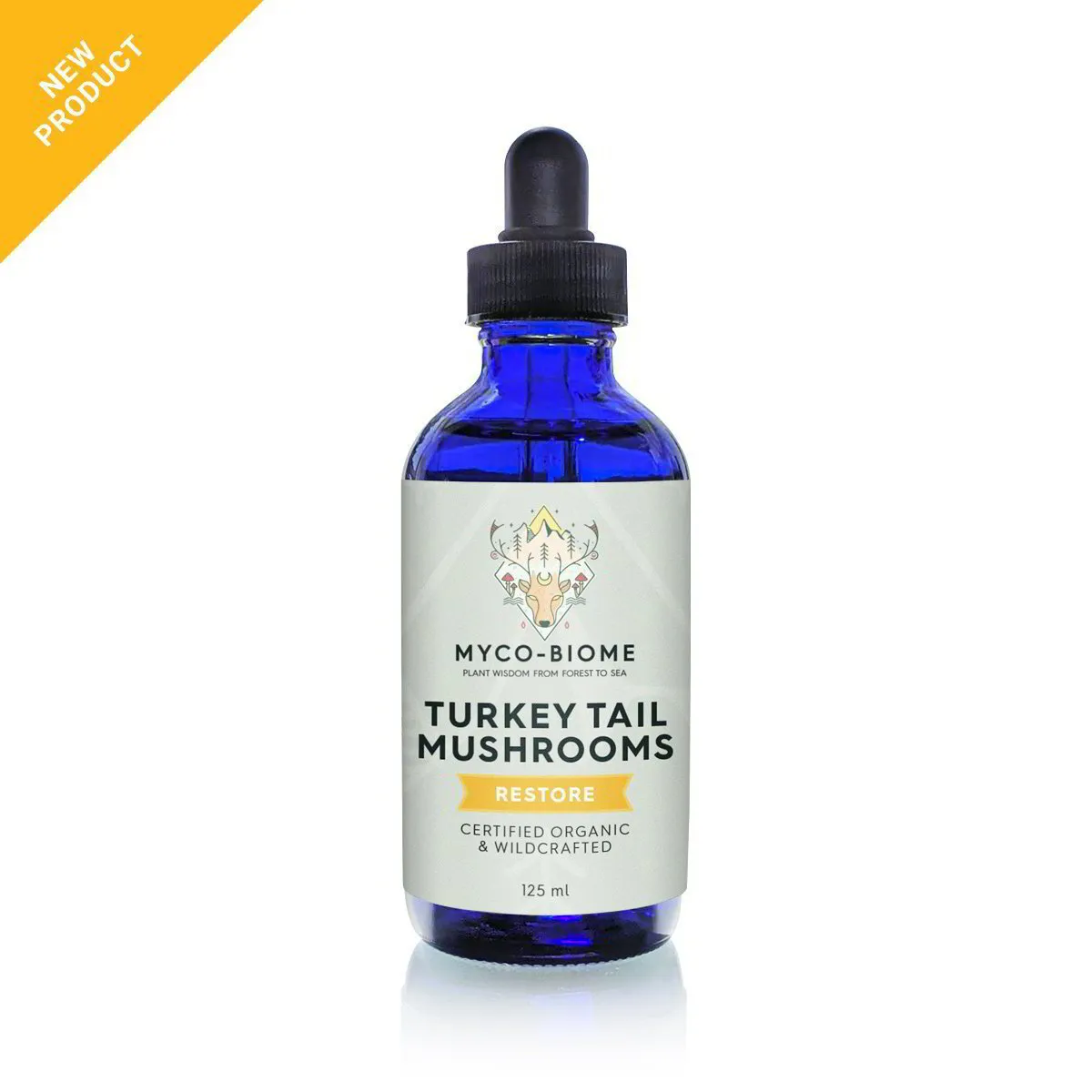Turkey Tail Mushroom for Dogs: Immune Support and Gut Health Boost
Share
Turkey Tail mushroom is renowned for its powerful health benefits, especially for enhancing immune function and supporting overall wellness. Packed with polysaccharides, beta-glucans, and ergosterol, Turkey Tail boosts immune health, reduces inflammation, and supports gut health. Its adaptogenic properties help pets manage stress, making it an excellent dietary addition. Head to Tail Canine Nutrition offers a high-quality product, perfect for both active dogs and seniors needing extra support. Explore how this remarkable mushroom can benefit your pet's health and well-being.
Organs and Systems:
Immune, Microbiome
Components:
Polysaccharides, Beta-glucans, Protein-bound
Polysaccharides (A*), Ergosterol
Key Actions:
Turkey tail improves immune function by stimulating cytokine production, increasing natural killer cells, and through other immune-boosting functions.
- Immune "defensive" support
- Adaptogen (B*)
- Cancer support
- Anti-viral activity (C*)
- Inflammation
- Reduced Immunity
- Cancer
- Vaccine titers
- Prebiotic support of microbiome due to fiber content and immune activity (D*) It is increasingly being understood that our overall health is highly dependent on our gut health. The composition of the gut microbiota affects everything from digestion to cognitive function
- Liver support (E*)
- Enhances energy
- Supports blood sugar balance (F*)
Organ Affinity:
Heart, Spleen, Liver, Kidney
TCM action:
• Strengthens the Spleen (boosts metabolism and
immunity)
• Regulates fluids
• Clears heat and toxins
(*) see below for more details
NOTE: The following is excerpts from REAL MUSHROOMS.COM
***
(A)“Protein-bound polysaccharides (PBP) found in Turkey Tail have the most research-backed immune-supportive effects. These PBP compounds can enhance key types of immune cells, like T-cells, when used alone or in combination with synergistic herbs [29]. Turkey Tail is a safe mushroom to use long-term within the context of proper medical treatment [23, 32]
Functional mushrooms may also enhance a third immune system known as trained innate immunity, an emerging concept in immunology (56).
Turkey tail combined with Reishi, another functional mushroom, shows even greater possibilities for helping the immune system (57).
(B) Turkey tail mushrooms are adaptogens as are many other mushrooms. Adaptogens help the pets body adapt to the various types of stressors we may come across. This includes physical, biological, or chemical stressors. Adaptogens interact with the hypothalamic-pituitary-adrenal (HPA) axis to help stabilize your cortisol levels under stress and assist the body in reaching balance again.
(C) Turkey's tail contains an impressive range of primary and secondary compounds. The secondary compounds are phenolic acids, flavonoids, and terpenoids. In fact, researchers identified 38 different phenolic compounds, including quercetin and baicalein. Quercitin and baicalein are two phenolic compounds found in other natural plants and herbs with an incredible amount of supportive research and health benefits behind them.
(D) A in vitro human study showed that a turkey tail polysaccharide extract significantly elevated two healthy gut bacterias while reducing the negative bacterias, Clostridium, Enterococcus and Staphylococcus species (Clostridium and Staphylococcus considered pathogenic when overpopulated). These extracts also increased the amount of short-chain fatty acids (another positive marker for a healthy gut), β-galactosidase (lactase), and glucosidase activity. A human study showed clear signs of turkey tail acting as a prebiotic (7,8,9,10).
(E) Results from animal studies suggest that polysaccharide peptide (PSP) in turkey tail could help protect the liver against free radicals by regulating the immune response to the free radical, such as increasing levels of the protective antioxidants SOD, glutathione peroxidase (GSH-Px), and glutathione (GSH) (39).
(F) Animal studies show that PSPs have been shown to support normal insulin sensitivity, which helps maintain blood glucose levels already within a healthy range (44,45,46). These results need to be replicated in clinical trials; however, these initial results in animals are very promising!
Disclaimer: The information in this article is provided as information resources only, and are not to be used or relied on to diagnose, treat, cure, or prevent any disease. This information does not create any patient-doctor relationship, and should not be used as a substitute for professional diagnosis and treatment.. The information in this article is intended for educational purposes. The information is not intended to replace medical advice offered by licensed medical practitioners. Please consult your veterinarian for any medical advice.

Disclaimer: The information or products mentioned in this article are provided as information resources only, and are not to be used or relied on to diagnose, treat, cure, or prevent any disease. This information does not create any pet-veterinarian relationship, and should not be used as a substitute for professional diagnosis and treatment. Any products mentioned are not intended to diagnose, treat, cure, or prevent any disease. The information in this article is intended for educational purposes. The information is not intended to replace medical advice offered by a licensed veterinarians. Please consult your veterinarian for any medical advice.


